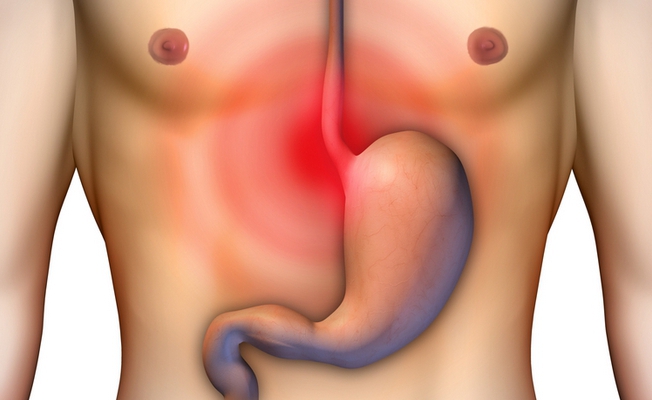Slimming injections are becoming more popular as a treatment for obesity, and the results show that they are effective: most patients lose more than 5% of their original weight within 12 weeks of treatment. It is easy to forget, however, that they are prescription drugs and can cause side effects that can be unpleasant.
Side effects are symptoms caused by taking certain medications, but it’s important to know that not all of them get. Each person’s body reacts differently to medications, but it is still important to be prepared and aware of the side effects of weight loss injections so that you know how to deal with them if you have any problems. However, if the side effects are too complex and begin to outweigh the benefits of the injections, you should talk to your doctor about stopping treatment and consider alternatives that may be available to you.
Most common side effects of slimming injections
Some of the most common side effects of weight loss injections that may occur at the start of treatment include:
- Nausea lithium
- Diarrhea
- Vomiting
- Low blood sugar (hypoglycemia)
- Gastritis
- Reflux / heartburn
- Abdominal pain
- Bloating
- Constipation
- Belching
- Gallstones
- Dizziness
- Fatigue
- Flatulence
- Taste changes
- Fast pulse
- Injection site reactions
Common side effects mean that a significant number of patients experienced these symptoms during clinical trials. Side effects can vary greatly from medication to medication depending on how they work in your body, but these symptoms appear to be most common in those taking weight loss injections.
However, there is a possibility that you may experience other side effects that are not listed here or in the patient information sheet for your injections. If you notice any change after you start taking the medication, you can report the new side effect using the MHRA yellow card scheme, which is available as an app for both iOS and Android.
So now that you know the most common symptoms you may experience, how do you deal with them to feel as good as possible with your weight loss injections?

Dealing with common side effects of weight loss injections
Luckily, some side effects tend to disappear within a few weeks of starting treatment, so if you suffer from them, you don’t need to worry about it for too long, although it’s still a good idea to know how to deal with certain symptoms to make you as comfortable as possible:
Nausea and vomiting
Nausea is one of the symptoms that usually improve and even go away as your body adjusts to weight loss injections, but it can be one of the most debilitating side effects, especially if you often feel or get sick.
Many people find it helpful to distract themselves and think about other things rather than focus on how they feel nauseous. There are various ways to distract yourself, such as listening to music, coloring pages, watching TV, or doing some work that you have to get done if you feel you can.
Eating or drinking foods that contain ginger can be another good way to combat nausea and vomiting, as the spice contains chemicals that are believed to act in the digestive system to relieve these symptoms. Many people find gingerbread or hearty biscuits to be helpful in controlling nausea. However, if you do not feel like you can eat, it is important not to force yourself, as this can worsen the nausea.
When you feel like you can digest food again, you should eat small amounts of soft food, avoiding anything spicy, fatty or greasy. You may also find that it helps you wear comfortable, loose clothing that doesn’t pinch your stomach.
If these home remedies do not make you feel better, you can ask your local pharmacist or physician about antiemetic drugs. These medicines help relieve nausea, and some can be sold over the counter at most pharmacies.
Among other things, it is important to avoid hydration, even if you are not hungry. You should take small sips of water, not large sips, as this can upset your stomach and make you feel uncomfortable. Always see your doctor if you have been vomiting for more than 2 days despite trying to combat nausea.
Low blood sugar (hypoglycemia)
Since this same weight loss injectable drug is also used to regulate blood glucose levels in people with diabetes, there is a chance that you may develop hypoglycemia if your blood sugar is usually within the normal, healthy range.
If you have any of the following symptoms, your blood sugar may be too low:
- Feeling hungry
- Sweating
- Lip tingling
- Shivering or shivering
- Dizziness
- Feeling tired
- Fast or pounding heartbeat
- Irritable
- Fading
- Blurred vision
- Difficulty of concentration
- Confusion
If you think you may be suffering from hypoglycemia, it is important to treat it as soon as possible so that it does not get worse or become dangerous.
Usually the most effective way to treat low blood sugar is to eat something sweet, be it a drink or snack, such as full sugar soft drinks or a few sweets. However, if you find this occurs frequently, it is a good idea to always carry glucose or dextrose tablets with you for quick and easy treatment. You can find dextrose pills at your local pharmacy. You should start feeling better within 10-15 minutes, and if you have access to a blood glucose monitor it may be a good idea to check your blood sugar after that amount of time. If you’re still not feeling well, you need more sugar.
Even though slimming injections reduce your appetite, it’s still important to eat at regular intervals, although you don’t need to eat food if you don’t feel it. Even a piece of fruit can be enough to stop blood sugar levels.
The key to treating hypoglycemia and recovering quickly is to notice symptoms early enough, so it’s important to become familiar with them to help yourself as soon as possible.
Diarrhea
Diarrhea is another side effect of weight loss injections that should go away as your body gets used to the new drug. However, untreated diarrhea can be unpleasant, frustrating, and even painful, so it’s always a good idea to try to treat it as soon as it starts.
One of the most important things to remember with diarrhea is to stay hydrated. You can lose a lot of fluids through watery stools, and dehydration can cause a host of other problems. However, you should avoid sodas and fruit juices where possible, as they can make diarrhea worse. It’s a good idea to stick with water, or you can add sugar-free hearty for flavor. Alternatively, you can use rehydration sachets such as dioralite to replace salts and minerals that may have been lost from watery stools. This is especially important if you have frequent motile or watery bowel movements.
In terms of medications, one of the fastest and most effective ways to combat diarrhea is to take loperamide, a medication available from supermarkets, pharmacies, or even your doctor for large amounts. Usually, two tablets or capsules of 2 mg of loperamide are taken to begin with, and then one tablet or capsule after each involuntary bowel movement. Loperamide usually takes effect about half an hour after you take it and can make your stools thicker and reduce the number of trips to the toilet. Loperamide treats diarrhea, but not the cause (in this case, weight loss injections), but it may not be suitable for some people, such as those with inflammation. bowel condition.
If your diarrhea lasts more than two days, you should see your doctor for advice and rule out any other causes.
Gastritis and abdominal pain

Gastritis is the medical term for inflammation of the stomach lining. It can be painful and unpleasant, causing symptoms such as:
- Indigestion of lithium
- Gnawing abdominal pain
- Nausea
- Vomiting
- Feeling full after eating
However, since many of these symptoms are themselves side effects of weight loss injections, it can be difficult to tell if you have gastritis or not.
In general, when it comes to abdominal pain, it is important to avoid taking NSAIDs such as ibuprofen or naproxen, as they can further irritate the stomach and increase pain and inflammation.
Antacids can also be used to relieve some of the symptoms of gastritis, but be careful not to use over-the-counter medicines for longer than recommended without talking to your doctor.
Gastritis and abdominal pain tend to resolve on their own over time, but if you need to take pain relievers, paracetamol is the safest option since it is not known to irritate the stomach or cause gastrointestinal problems. It is also recommended to avoid spicy or rich foods, as they can also irritate the stomach lining.
Bloating, flatulence and belching
These side effects are usually caused by excess air in the stomach or intestines and can be both uncomfortable and embarrassing. Fortunately, there are a few things you can do at home to reduce symptoms, such as cutting down on certain foods that cause excessive wind, such as beans, cabbage, cabbage, etc. You may even be aware that some other foods make you feel bloated, so it might be a good idea to avoid this while you are suffering.
You should also avoid carbonated drinks and chewing gum whenever possible, as they can contribute to excess air in the stomach and intestines, causing bloating, bloating, and belching, but drinks such as water and heart drinks are nonetheless are a safe option to keep you hydrated.
There are also remedies for bloating and trapped wind that can be bought in supermarkets and pharmacies, for example against the wind and Andrew’s salt. It might be worth trying them if you really feel uncomfortable or home remedies aren’t working. However, it is important to remember that bloating can be a sign of constipation, so watch for any changes in your gut.
Upset stomach, reflux and heartburn
These side effects can cause chest pain and a burning sensation that sometimes makes you feel unwell. However, there are several ways to combat this and prevent them in the first place.
One of the key tips to avoid indigestion, reflux and heartburn when taking slimming injections is to consume smaller portions. You can always add more to your plate afterwards if you still feel hungry, but many people find they are satisfied after eating less.
You should not eat before bed, as lying down while your stomach is trying to digest food can aggravate your symptoms and make them much worse. In fact, many people find that their head is slightly raised when lying in bed, sleeping in a recumbent position, rather than lying on the floor. This prevents stomach acid from entering the esophagus.
If these symptoms persist, you should see your GP as you may be at risk of developing GORD – gastroesophageal reflux disease. They may suggest that you start taking antacids, such as omeprazole or lansoprazole, to reduce the amount of acid your stomach produces, which in turn should ease your symptoms. Other medications, such as ranitidine and some of the strengths of esomeprazole, are available in supermarkets or pharmacies if you only have occasional heartburn and want immediate relief.
Constipation
Constipation is usually caused by stools that are too dry and difficult to pass. When you are constipated, it is important to drink plenty of fluids to keep your stools moist. You should also increase your fiber intake to stimulate softer stools. Constipation can cause other problems, such as hemorrhoids or fissures in the anus due to tension, so it is important to try to treat the problem as soon as you notice it.
If you find that increasing your fluid and fiber intake does not help, there are several types of laxatives that can help, some of which are available in supermarkets or over the counter at pharmacies. The main four types of laxatives include:
- Bulking laxatives
- Osmotic laxatives
- Stimulants
- Poo Softeners
One of the most popular and effective laxatives is senna, which can be bought easily. This usually works for 6-12 hours and is great for quickly relieving short-term constipation. If you are unable to take Senna, or if it does not help you relieve constipation, ask your local pharmacist for advice.
Do not take laxatives unless you have constipation. It will not accelerate weight loss and can be dangerous, putting you at risk of dehydration.
Gallstones
Gallstones themselves usually do not cause any symptoms unless they block the bile duct and cause problems. These are hard lumps that are usually made of cholesterol and are found in the gallbladder.
You may have gallstones that are causing problems if you experience any of the following:
- Sudden and severe abdominal pain
- Excessive sweating
- Nausea
- Vomiting
- Temperature 38 or higher
- Rapid heartbeat
- Itchy skin
- Diarrhea
- Chills
- Confusion
- Loss of appetite
If you think you may have gallstones, you should really make an appointment with your doctor. While treatment is not always necessary, they may prescribe medication for you based on your symptoms or even refer you to surgery if they feel you need it.
Dizziness
While this is a common feeling, dizziness can make us feel nauseous and unwell. It can be caused by dehydration, low blood sugar, insufficient nutrition, or other causes. The main way to deal with vertigo is to avoid fast movements, as this can make the situation worse. Keep yourself well hydrated with water if you suspect it may be due to dehydration, and stay aware of hypoglycemic symptoms in case you need a sugar boost. Traffic sickness pills can help with nausea caused by dizziness, and most of them are available over the counter without a prescription. If you are at home, this can help you lie in a reclining position and close your eyes to stop any sensations you may be experiencing.
Fatigue
Fatigue is what we all feel, but when you are on a new medication, such as weight loss injections, it can seem more extreme than usual as your body adjusts.
It’s important to make sure you get enough sleep at night – usually around 8-9 hours, but if you’re still tired afterwards, you may need medical attention to stay or feel more alert.
Fatigue can be caused by low energy or even low blood sugar, so it’s important to make sure you eat enough for your body to function, even if you don’t eat a full meal every 4 hours. Small but wholesome snacks are often the best way to stay satisfied without being awake.
If your fatigue is interfering with your daily life and you are struggling with work, you should make an appointment with your doctor to discuss medications that may be right for you. Modafinil is a drug commonly prescribed for people with narcolepsy, a condition that causes excessive sleepiness. If your doctor thinks it can help with short-term fatigue that affects the rest of your life, he or she may prescribe it to help you feel more alert.
Injection site reactions
Injection site reactions are common with these types of drugs. If this is your first time using subcutaneous injections, it is always a good idea to ask your pharmacist or nurse to show you how to do it correctly and minimize the risk of a reaction.
It is also important to constantly change the injection site so as not to damage the area. It can be helpful to remember where you recently injected so that you can choose a different site the next time.
If you have an allergic skin reaction to weight loss injections, you should seek medical attention at 111 (or 999 if you have signs of a severe allergic reaction or anaphylaxis). If this happens, you may need to stop injecting.




